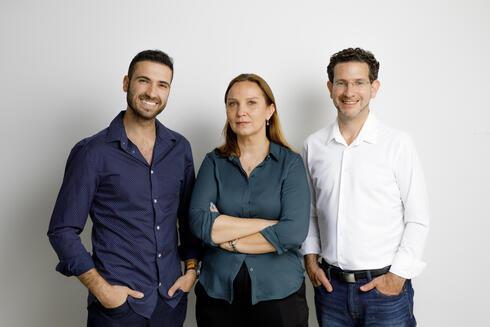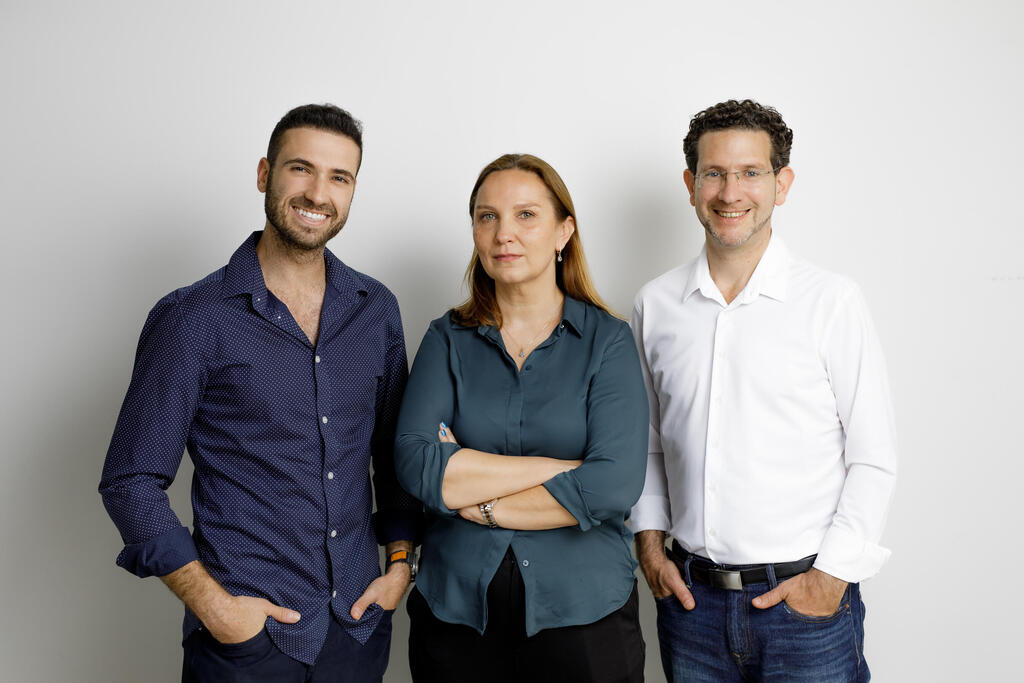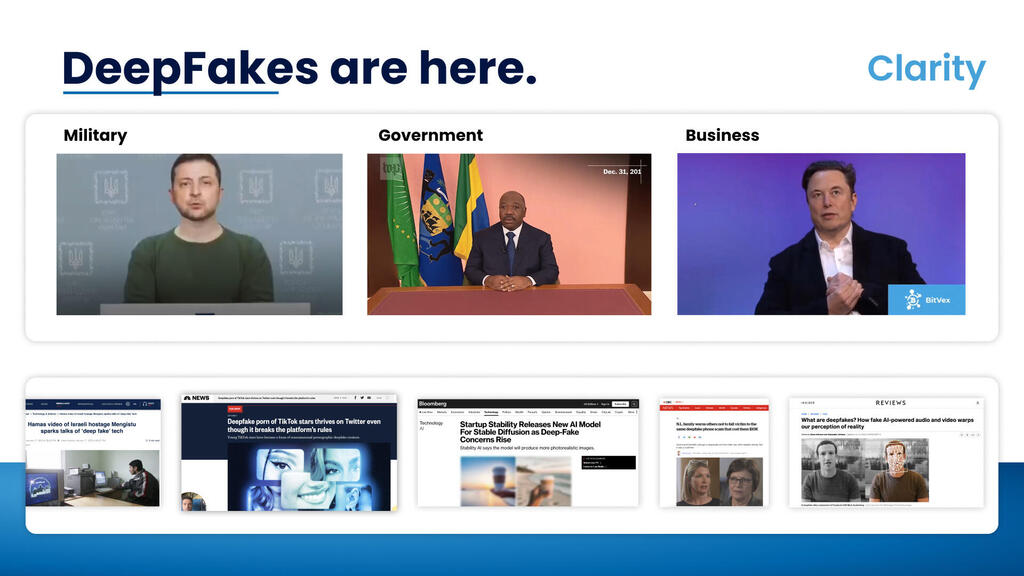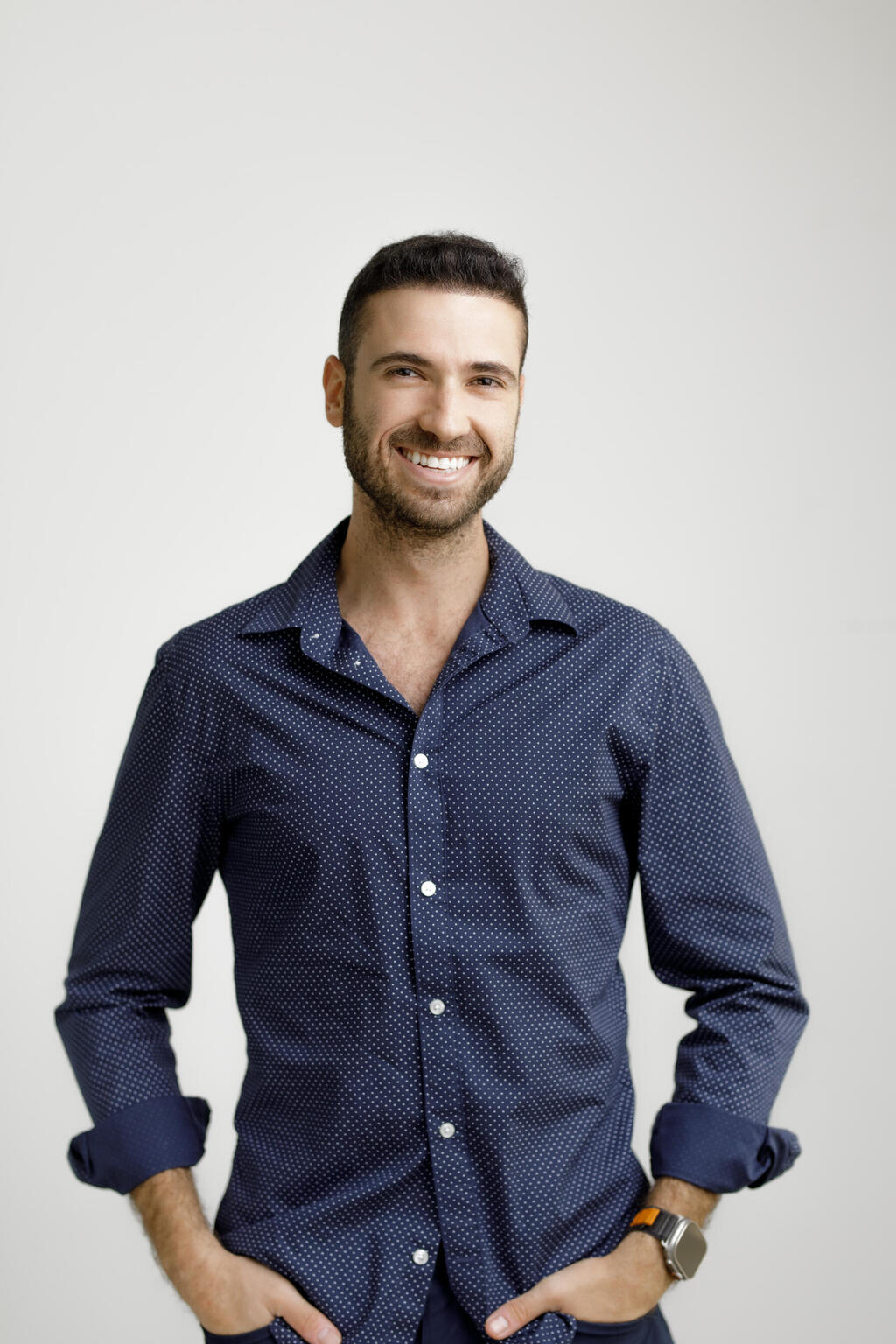
Michael Matias: "We're racing towards mass skepticism about content and information. But the truth will prevail."
Michael Matias, a well-known investor with an impressive success track record from Stanford and Eric Schmidt’s Innovation Endeavors, recognized the convergence of cybersecurity and artificial intelligence and founded Clarity – a cybersecurity company that protects from deep fakes and social engineering that currently leads the field. He discussed with Lior Avisar the impact of fakes in warfare and their broader implications for our lives
At the end of 2022, Michael Matias founded Clarity, which is backed by prominent American and Israeli VCs. The company specializes in protecting enterprises and organizations from deepfakes, preventing malicious manipulation and phishing attacks. Their applications utilize AI algorithms that can analyze photos, videos, and audio - encompassing phone calls, video calls, WhatsApp videos, and news broadcasts. These algorithms ensure that the media hasn't been tampered with by artificial intelligence, and the company can securely watermark media to classify it as either fake or genuine.
This technology has already found its way into some of the world's top publications, major banks, and even ministries of national security. "In Israel, we collaborate with the security agencies," says Matias. "Conflict is not only physically brutal but also has a digital dimension that engulfs the entire globe, manifesting as a battle for perceptions. There's a large disconnect between on-ground realities and online perceptions. On October 12th, just five days into a conflict in Israel, CBS's CEO shared that 90% of the media reports they received were deemed non-credible. This discrepancy is due to the pervasive influence of deepfakes and widespread misinformation."
So, how do you assist security forces?
"Today, digital media serves dual purposes in conflict: 1) Providing intelligence related to national security, and 2) Communicating news to the general public to wage perceptions for hearts and minds. We integrate into the workflows of security agencies to validate the authenticity of intelligence data. And naturally, we also have a role in the media landscape, helping both news outlets and the broader media environment combat the spread of false narratives."
Do you also collaborate with major social platforms like TikTok or WhatsApp?
"We're actively engaging in discussions with them, and it will happen. It's evident that, in the near future, all significant platforms will require a verification mechanism, akin to a water filter. Currently, we're laying the groundwork for such integrations. There is a significant challenge in deploying AI algorithms, which are resource-intensive, on platforms that handle billions of media files - but it’s possible and has the potential to be extremely rewarding and impactful. Regulatory pressures are also escalating. In the past half-year, almost every week a new country has outlawed the production and sharing of deepfakes. Though legislative action can be slow, it's bound to become increasingly influential."
Recent events seem to suggest that objective truth is eroding. Presenting someone with photographic evidence no longer guarantees belief. Consider the recent bombing of the hospital.
"That’s right. We are racing to a stage where doubt surrounds almost every piece of information. It's becoming clear that our senses can't always be relied upon. A voicemail might sound like you, but how can I be sure it's genuinely from you? That’s why we founded Clarity. During my time at Stanford, a professor who had served as the U.S. ambassador to Russia shared his own experience of being deceived by a deepfake during what was supposed to be a Zoom call with Ukraine. That was a wake-up call for me. I realized that if unchecked, this technology could severely compromise our communication systems and even threaten the foundational principles of democracy. Later, while working at the venture capital fund of Eric Schmidt (Google's former CEO), where my focus was on deep learning and cyber, I witnessed firsthand the dangers posed when cybersecurity intersects with AI."
Are we winning or losing in this battle against deepfakes?
"It's an ongoing tug-of-war. There will be moments when we feel like we’re losing, and moments when we feel like we’re winning. Historically, we've adapted to every digital challenge that's arisen. Now, with the proliferation of fabricated content, we're being pushed to evolve more rapidly. We need technological tools that can reinforce our senses, similar to how we rely on glasses or hearing aids. As we use devices to improve our physical senses, we'll also lean on tech to see and hear with clarity."
What's your message to startups during this time?
"Anyone who has technology that is relevant to the war, may find this period immensely catalytic. The challenges we face are pushing us to make quantum leaps in innovation, which invariably benefits startups. That’s a big part of the story of the startup nation. I am personally very optimistic about Israeli high-tech; I already see the extensive support from global financial institutions and customers - old and new. I believe that post-conflict, our nation will not only recover but emerge stronger and more resilient. In the meantime, my advice to fellow CEOs and entrepreneurs is to hold tight to the sides of the boat. We embarked on an entrepreneurial journey, and we knew there would be waves along the way. Sometimes, there is also a tsunami."

















